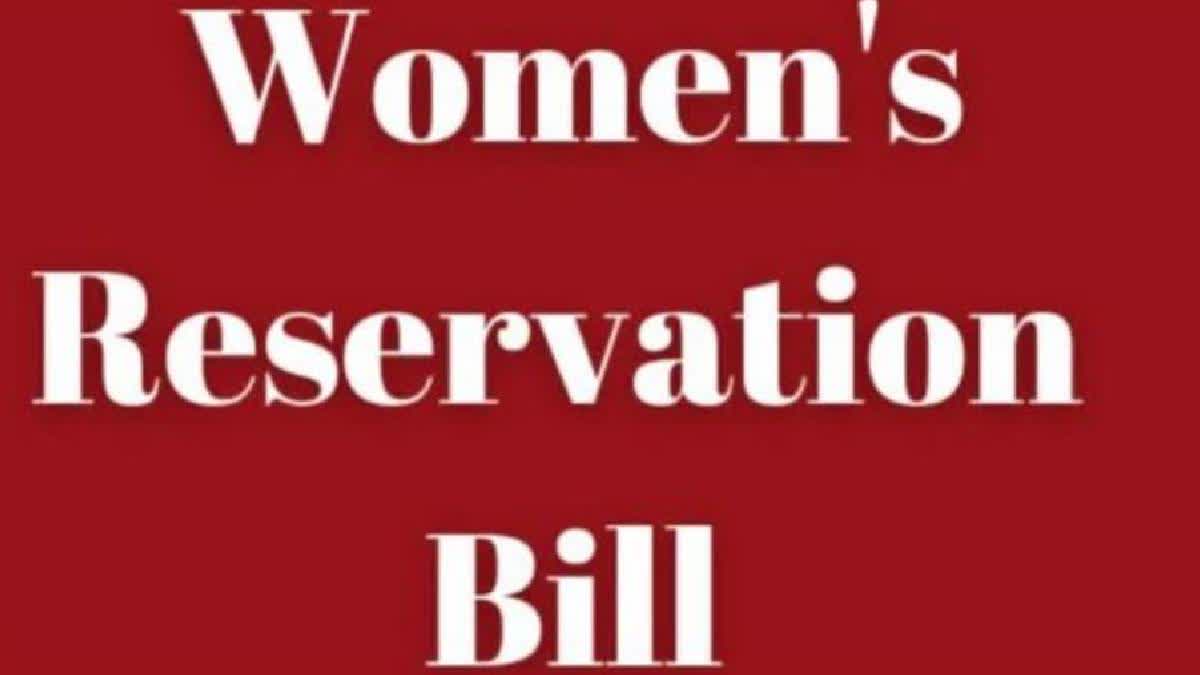Hyderabad: In a groundbreaking milestone at the newly constructed Indian Parliament building, history took a significant turn, marking a testament to self-reliance. The much-awaited Women's Reservation Bill, which had been stagnating in the proposal stage for an extended period, was introduced in the Lok Sabha by the Union Law Minister.
The bill aims to reserve 33 percent of seats in the Lok Sabha and state legislatures for women, pending approval by both houses of Parliament and ratification by at least half of the state legislatures. The proposed legislation, with a duration of fifteen years, also extends its reach to the Delhi Assembly. If passed, it will elevate women's representation to nearly three times the current 11.48 percent.
The current Lok Sabha houses 78 women MPs, and the potential surge to 180 women legislators paints a vivid picture of a substantial boost to women's empowerment and social development. This move revives the long-lost ambitions of the 'National Perspective Plan' from 34 years ago, which envisioned 30 percent of legislative seats designated for women. Despite initial indifference from political parties, the introduction of the first constitutional amendment bill in the Lok Sabha in 1996 marked a watershed moment. However, it faced hurdles and setbacks, ultimately leading to its defeat in 2014 due to objections from various political factions.
But times have changed. The prospect of the Women's Bill facing opposition similar to its past seems unlikely this time. The Congress Party has taken the bill under its wing, and support has emerged from parties such as the NCP, Trinamool Congress, Biju Janata Dal, BRS, and TDP. This collective effort demonstrates a new outlook on the importance of women's political participation.
Reflecting on the vision of Hansa Mehta, a member of the Constituent Assembly, who emphasized the pursuit of social, economic, and political justice, it is evident that India is yet to achieve equality of opportunity for women, even after seven and a half decades of independence. Although women hold a significant portion of local political power, familial dominance continues to cast a shadow. To avoid a repeat of this predicament, the need for legislative reservations becomes evident.
Comparing India's female political representation to countries like Rwanda, Cuba, and Bangladesh underscores the nation's lag in this regard. Despite the Constitution's Preamble, Fundamental Rights, Duties, and Directive Principles of State Policy advocating gender equality, a constitutional amendment bill has become necessary due to the lack of initiative from political parties in promoting women's participation.
Even if the bill successfully passes through Parliament, the implementation of the women's quota is not immediate. It requires ratification by at least half of all state legislatures, and delimitation, the process of reorganizing constituencies, must precede its enactment. As a constitutional amendment from about twenty years ago extends constituency reorganization until 2026, it is possible that the women's reservation bill may only be realized by the general elections in 2029.
If political parties are genuinely committed to women's empowerment, this legislation should be expedited. Moreover, all political parties must remain steadfast in their dedication to advancing women's multifaceted roles in society. As Prime Minister Modi stated in his speech yesterday, this is the true 'baptism by fire.'
Also Read: President Droupadi Murmu gives assent to women's reservation bill



